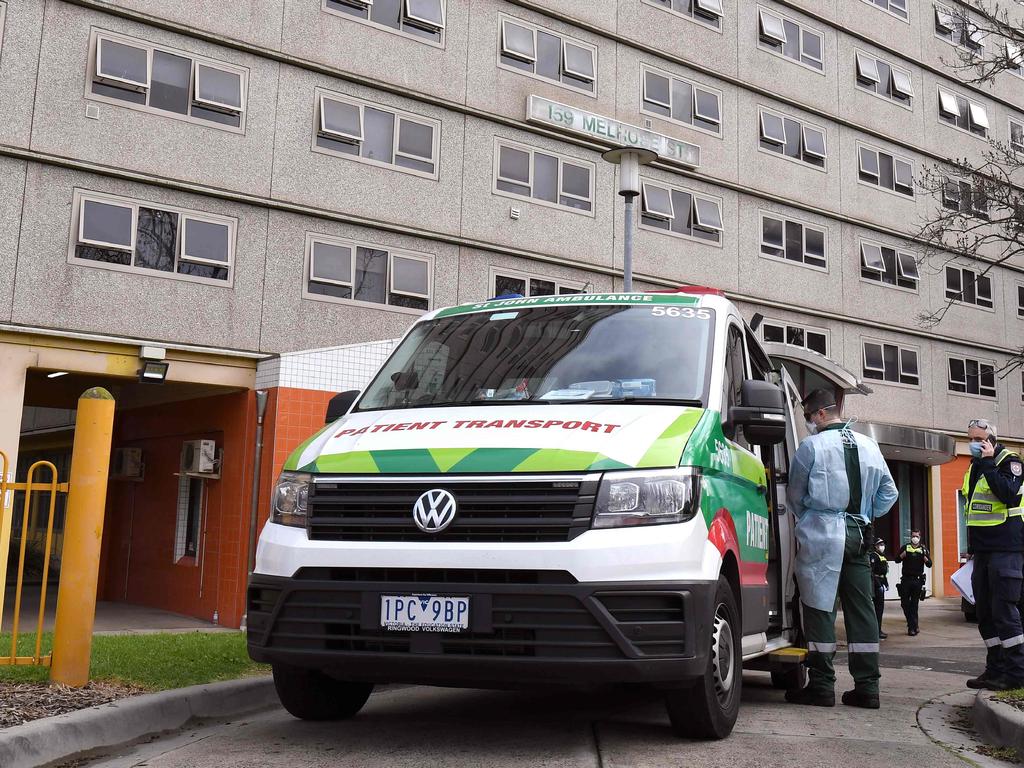Victoria’s new lockdowns sapping economic confidence
Melbourne’s CBD remains a ghost town, but the real hit will be to confidence, business leaders say.

The closure of Victoria’s borders risks slowing the national recovery from the coronavirus crisis, with an expected return to lockdowns across Melbourne also sapping business confidence.
The sharp spike in infections has prompted a clampdown by businesses that were preparing for a return to work and normalised working conditions in line with other states.
But Melbourne’s central business district remains a relative ghost town, with some landlords ready for tighter restrictions.
Business leaders warned the initial limited impact on supply chains could be compounded by a hit to business confidence as the city is dotted with empty office buildings, with occupancy running as low as 10 per cent.
Companies may also push work into other states that are not caught by border restrictions, with Sydney and Brisbane positioning for work.
Melbourne business leaders expressed concerns about the longer-term economic impact of the pandemic and associated lockdowns.
Garry Weaven, the former chairman and founder of $150bn IFM Investors and former chairman of Industry Super, said there would be breakouts while the virus was at large, but he is most concerned about getting businesses up and running.
“The longer the economic lockdown goes on, the impact of that on the economy and confidence not only worsens, but at an accelerated rate,” he said.
“It’s not just about the recent uptick (in cases), the economic issue is that businesses can’t sustain such debts.”
Mr Weaven warned that businesses may be overwhelmed when banks could no longer provide relief and some would not return.
“Every day that goes by, more and more fall into that category,” he said.
“The main issue is what we’re going to do about restarting the economy and what are the targeted measures to be adopted,” he said. “The underlying economic problems have been masked by the fiscal measures.”
Even so, with essential goods passing through the border, plastic and metal packaging manufacturer Pact is still hopeful business will not face short-term problems.
Pact has plants in both Victoria and NSW and chief Sanjay Dayal told The Australian “the same rules applied on the Queensland border, but we have had no supply chain issues in Australia”.
The tightening of Victorian restrictions is hitting major shopping centre owners, which focusing on essential services in lockdown areas, and office landlords. Those most exposed to Victoria are likely to be worst affected.
Vicinity Centres has 51 per cent of its assets in Victoria, including a half-stake in the landmark Chadstone shopping centre that it owns with billionaire John Gandel.
By contrast rival group Scentre, owner and operator of the local Westfield empire, has only 15 per cent of its properties in Victoria.
GPT and Mirvac have about 30 per cent of their office portfolios in Victoria, while Dexus had about 16 per cent at the end of 2019.
Office landlords are closely monitoring the situation in Melbourne, where Victoria’s Andrews government has advised employees to keep working from home where possible, lowering occupancy rates in the city. Private landlord Investa, owner of CBD towers like the upmarket 120 Collins Street, said the current lockdown of hotspot areas was an “appropriate response” to limit community transmission.
“In the unlikely event of a CBD lockdown, we have undertaken scenario planning as part of our COVID-19 emergency response plan,” the company said.
Investa has seen workers pour back into offices elsewhere in Australia and called out expected rises in NSW due to higher capacity levels across the public transport network, effective from July 1.
But office attendance in Melbourne was between 10 per cent and 12 per cent, the landlord said.
Melbourne-based Hostplus chief executive David Elia reviewed the super fund’s return to work plan four weeks ago and concluded it was “too hard and too risky” to bring people back.
“I cannot see us being back before September. Even if we want to, it’s just impossible to do in the current environment,” he said.
“The big issue is more to do with public transport. Despite the fact that we may have best intentions to get our people back together, the circumstances make it incredibly difficult to do so.”
On Monday it emerged that a Hostplus staff member based at the super fund’s William Street office in Melbourne’s CBD tested positive to coronavirus after coming into contact with a confirmed case two weeks ago.
Melbourne-based banks are also keeping their staff at home, with ANZ continuing to have people in Victoria work remotely and only a small number of essential staff in the office.
The bank is prepared for working at home to continue in Victoria until year’s end and could shift call centre work to New Zealand if required. The NAB’s executive team is largely working remotely and meeting via Zoom. “We are continuing the approach we have had in place since late March, as most of our colleagues have been working from home since then,” a NAB spokesperson said.
Major resources and industrial companies headquartered in Melbourne also locked down early. As borders were closed in WA and Queensland, key operational staff that were no longer able to fly in and out from Sydney and Melbourne were dispatched to live temporarily in Queensland and Western Australia until the borders reopened.
Head office employees and senior executives of companies such as BHP, Newcrest and Orica are still working largely from home, with only critical staff working from their Melbourne offices.
NAB chief economist Alan Oster said the impact of the further shutdowns in Victoria depended on how long the broader border lockdown lasted.
“The closure to NSW doesn’t help but it’s hard to tell in a fundamental sense what’s going to happen,” he said. “It’s clearly negative. It probably means the September quarter won’t be as strong in total GDP as we had previously expected — but then again the June quarter was better than expected.”
Mr Oster said early data showed Victoria had been the state worst-affected by the economic shutdown but had since recovered to mid-levels.
He warned of a “big hit” to commercial property as fewer people go into the CBD.
Sydney is expected to pick up the slack while Melbourne is marred in uncertainty, with the Committee for Sydney chief executive Gabriel Metcalf saying the city was already an attractive destination for businesses.
with John Durie, Cliona O’Dowd, Joyce Moullakis




To join the conversation, please log in. Don't have an account? Register
Join the conversation, you are commenting as Logout